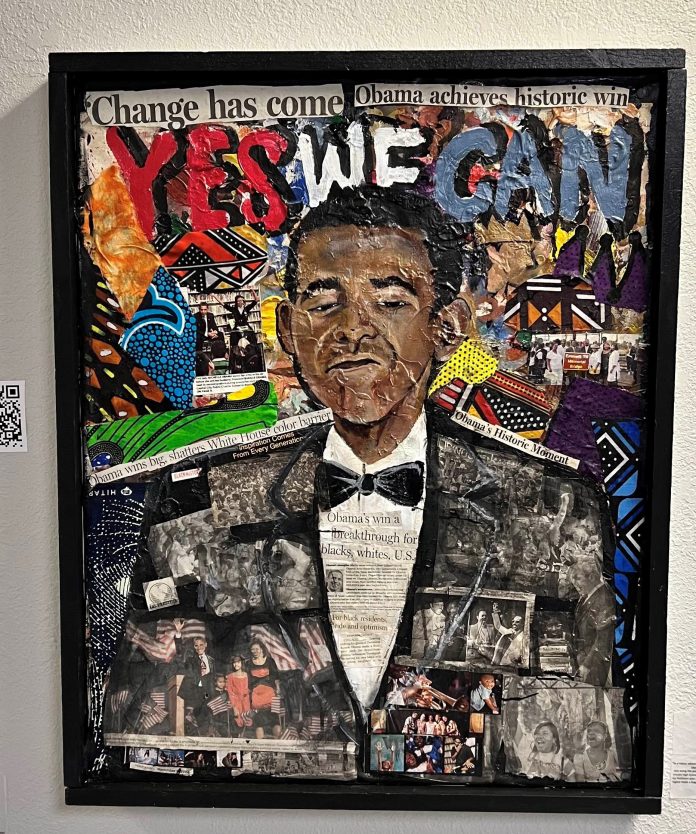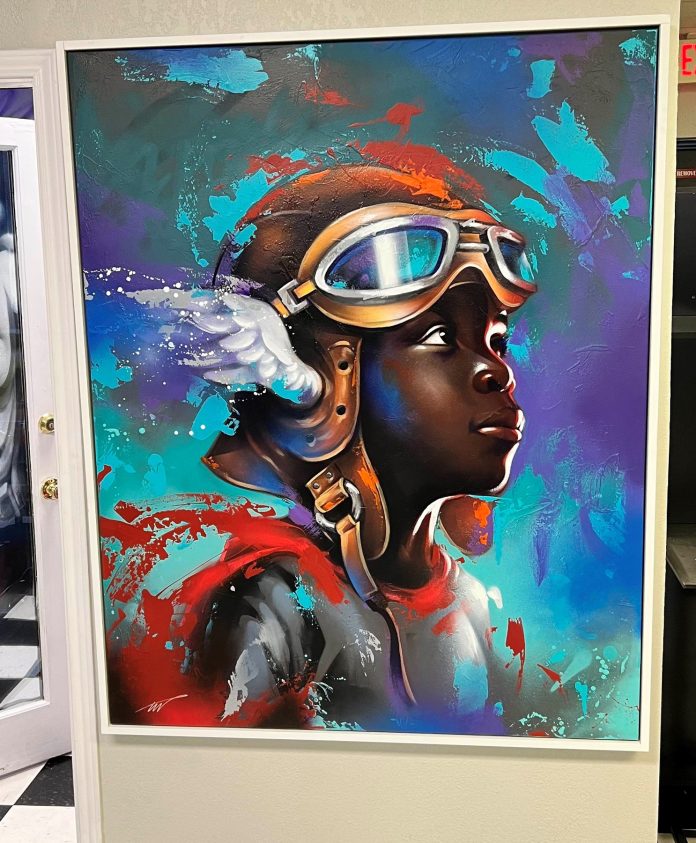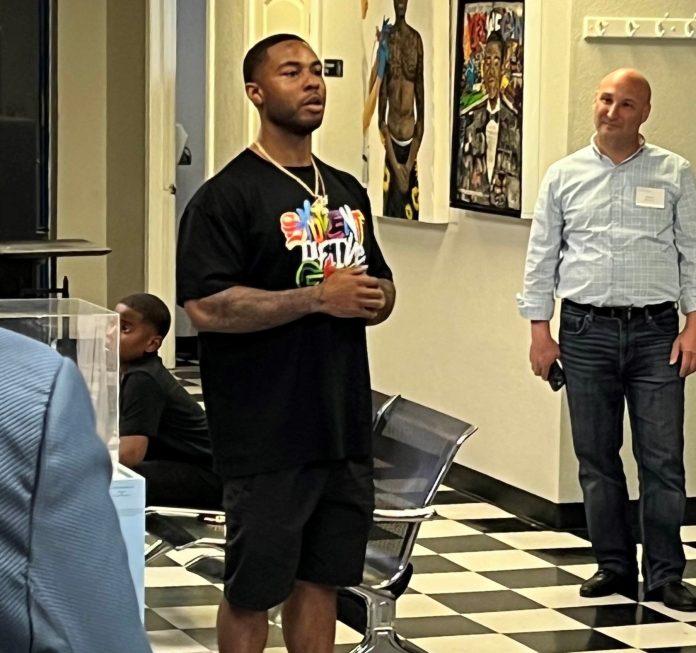Contributing Writer
It can be extremely hard for someone, civilians in particular, to express themselves without having a sense of fear and anxiety. There are many instances where someone might express how they’re feeling, and the end result is the person feels less than or like they don’t belong in their community, or even the world. Expression can be looked at as someone telling a story or conveying a message towards someone. Whether it’s good or bad, you should be allowed to express yourself, because someone else might feel the same way as you.
Even though there are some who look down on others, there is a space where people you can come and be free and express yourself without any consequence. In an interview with Irving Police Officer Brandon Porter, Jimmy McGee (owner of 1Nice Cut Barbershop) artist Trey Wilder, Bharathi Dev, Lakeem Wilson, Liffort Hobley, Kat Warwick, and Sumi Srikanth, unpack what it’s like for people in a community to express themselves.
Jimmy McGee, owner of 1Nice Cut Barbershop, and advocate for Shop Talk, says he believes bringing people together is his super power. He was a little hesitant to work with the police because of the uncertainty and uncomfortableness that lies within the inner communities, but once he took a chance on the Irving Police Department, it became easier to involve himself with them. He also says that there aren’t enough answers to the questions being asked by young African American men today.
Brandon Porter became an advocate for Shop Talk because he understands the importance of the citizens of Irving and other communities to come together with police and collide. He explains he has been involved in law enforcement for nine years in Pine Bluff, Ark, where the relationship with the community wasn’t there. He explains that the kids there feel their only options are go to jail, or work in the city’s factories. Porter says the barbershop is a focal point of the community because it’s where people have reservations about life, express how they feel, and have a sense of togetherness. While it’s never easy for law enforcement and the community to come together, Shop Talk can be an inspiration for you to get involved in your communities and to feel less alone in life’s journey.
Speaking of inspiration, artist Trey Wilder always tries to inspire others. He put together a piece called “Dream Flight,” symbolizing that people always have to dream. At first glance, you just see a boy with a helmet on looking up, but if you look deeper, it can be interpreted as you need to dream big, probably dream more, or even just dream. The “Dream Flight” piece can symbolize hope, prosperity, and confidence that you can do anything you put your mind to. Wilder’s motto is always to stay inspired and be an inspiration for others. Throughout his art, you can see how much of an inspiration he is to the community. He also said something that was intriguing, “When you stop learning, you die.” This isn’t saying that you die physically, but mentally, as in your mind stays stagnant, and you’re not constantly evolving, not reaching higher heights. Wilder embodies a lot of what Shop Talk represents, he expresses his thoughts through his artwork, he’s being an inspiration for the community, and he is making an impact on the barbershop.

1Nice Cut Barbershop was one of the first places to endorse Shop Talk, because of Jon Pluckett. He got his start as a police officer in Memphis, Tenn. 23 years ago. As he was working there, he noticed that there was a disconnect between police officers and kids. In 2015, he joined Tony Brinker, founder of One Community USA, to help bridge the gap between law enforcement and citizens. One Community USA makes plans to take Shop Talk national because it is a widespread problem. To be able to walk into different barbershops to get law enforcement involved positively in the community, you’ll surely bring hope for a more peaceful community.
Another artist, Bharathi Dev, expresses hope all throughout her work. Her artwork is tailored to a lot of African American children, though she is of Indian descent; One of her pieces “Your Life is in Your Hands” actually symbolizes hope and perseverance. The piece is an African American girl using a sculpture to create something. Dev tells us that we’re in control over our lives. We control our destiny, and we’re the sculptor of our lives. She also has another piece, “Make A Wish,” inspired by her younger daughter, Moksha, that also inspires hope, and the dreaming of your life into existence. She wants to be an inspiration towards others and to be that ray of hope for younger children. Her artwork hangs up inside 1Nice Cut Barbershop, open for anyone to see.
Expression and Shop Talk go hand-and-hand, in a sense of that you have the freedom to express yourself and voice your opinions in any shape or form.
The shop’s owner, McGee, said he used to feel it was weird working with the police, because of the stigma they had, and even where he grew up, in New Orleans. He describes that in 1994, New Orleans was once called the murder capital, where people from left and right were gunned down all because there were certain resources that were closed off to the kids. And when you close off certain opportunities from kids, sometimes you leave them no choice but to gravitate towards violence. Shop Talk and expression coincides with one another in a sense that you’re free to express yourself; people will assist you should you need help. Shop Talk exists because of guys like Jimmy because even though he grew up not trusting the police and was skeptical about working with them, he realized in order for change to happen, law enforcement and people in the community have to come together to reach common ground so that both parties can coexist peacefully.


